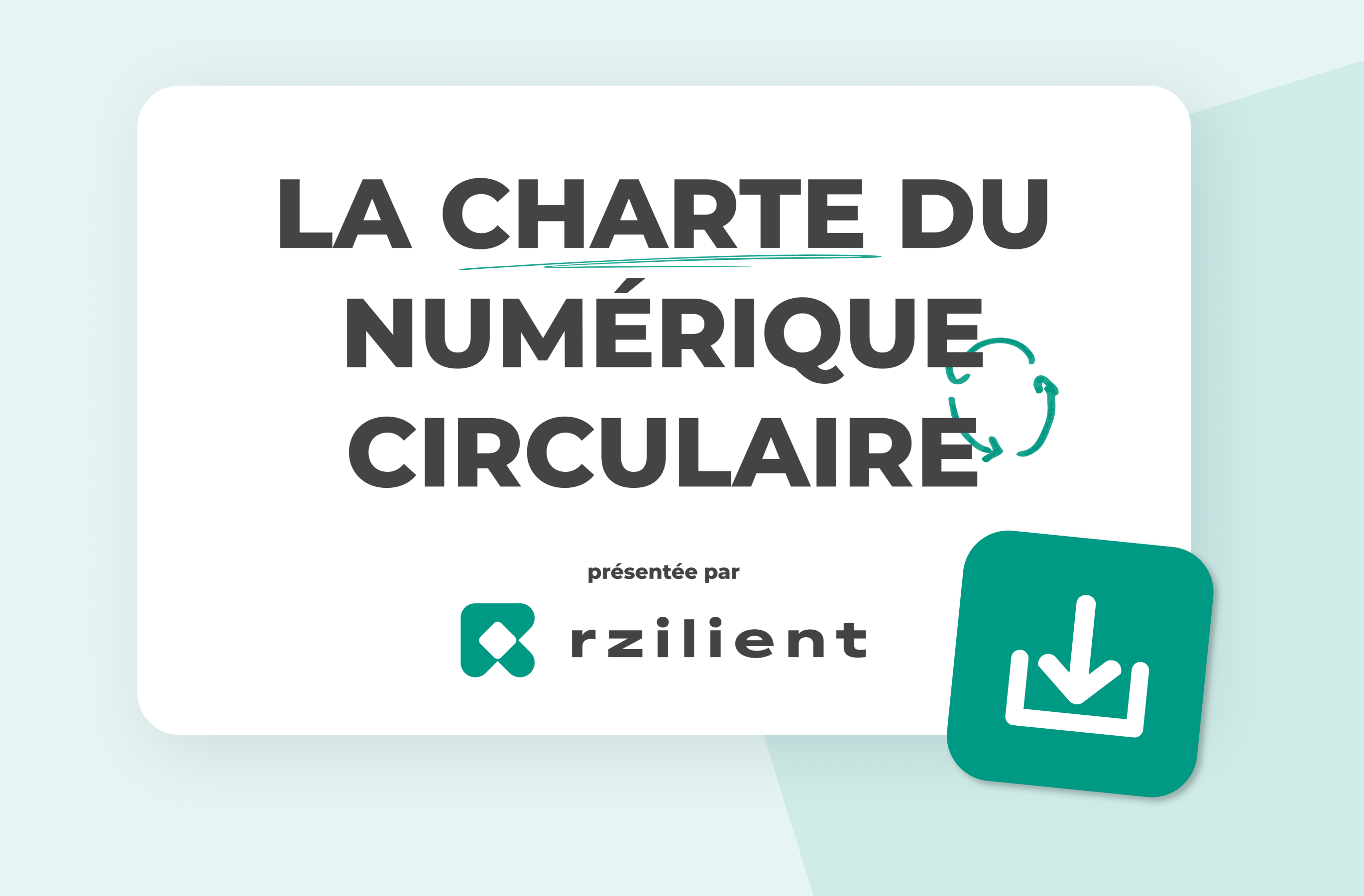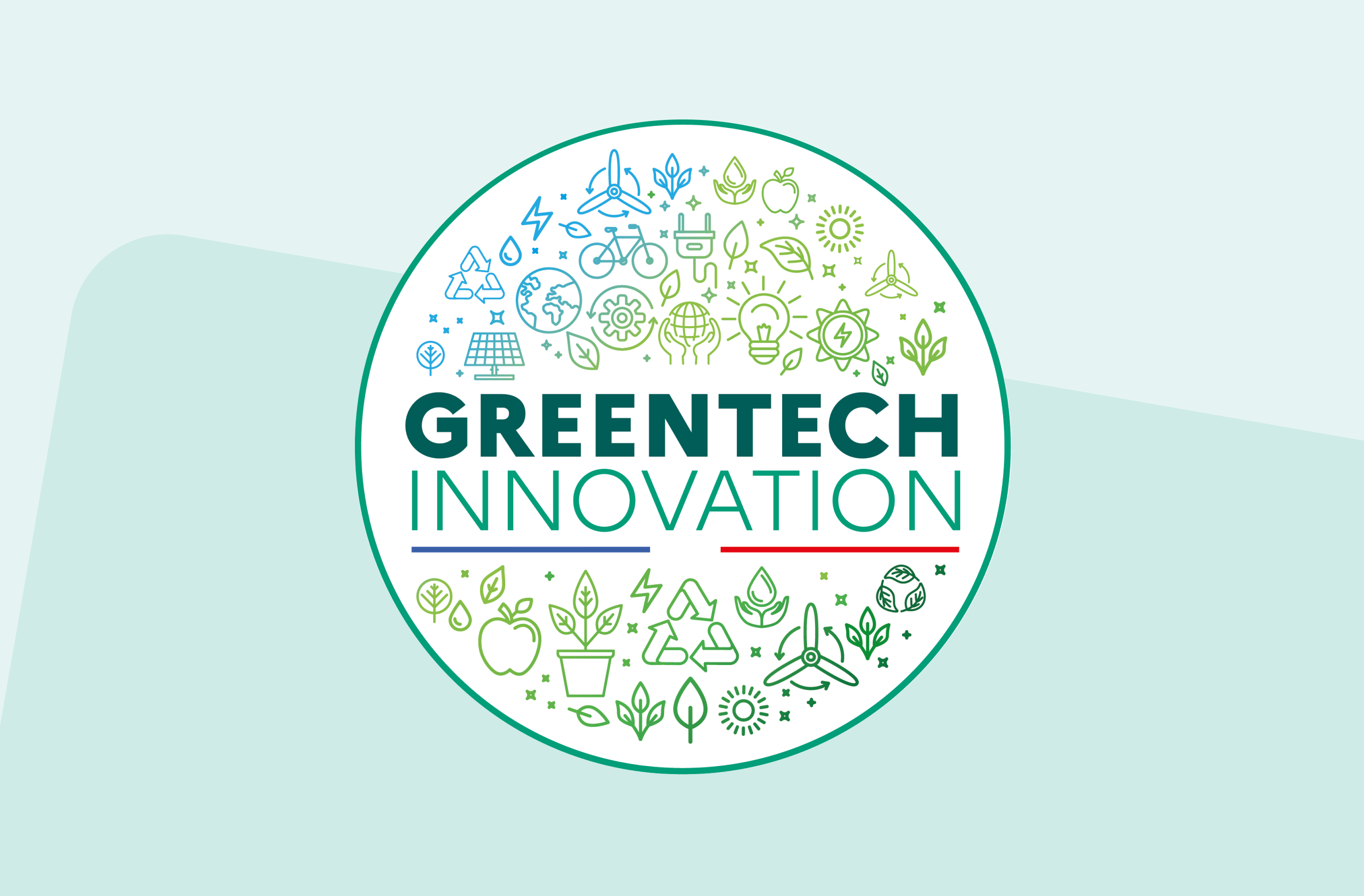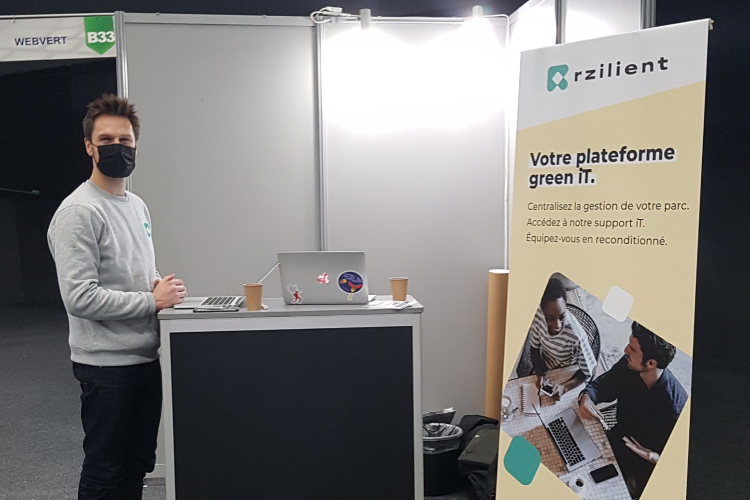Le Green iT, de plus en plus plebiscité en entreprise

Découvrez notre solution tout-en-un
Aujourd’hui, les préoccupations environnementales prennent de plus en plus de place. Que ce soit dans son quotidien ou dans son travail, les salariés attendent des entreprises qu’elles s’emparent pleinement de ces questions.
La transition écologique n’est plus vue comme une mode mais bien comme une nécessité pour répondre aux enjeux du quotidien et du futur. Elle devient un moyen important pour augmenter la compétitivité des entreprises en plus d’être un levier puissant de changement.
Mais pour avoir un réel impact positif, il est temps de sortir des simples écogestes et d’aller plus loin dans la démarche. C’est pour cela que le numérique responsable, ou Green iT, devient un enjeu majeur pour les entreprises.
À quel point est-ce que la transition écologique est importante pour les salariés ? Qu’est-ce que c’est exactement le Green iT et comment le mettre en place au sein de son entreprise ? Rzilient vous livre ses pistes de réflexion sur la question.

La transition écologique au cœur des préoccupations
LinkedIn et l’ADEME ont présenté en mai 2021 une étude réalisée avec l’Institut CSA pour évaluer le regard qu’ont les salariés sur la question de la transition écologique sur leur lieu de travail. Pour ce faire, 1004 salariés du privé, du public et d’ONG ont été questionnés.
Un intérêt croissant pour les enjeux environnementaux
Le chiffre qui ressort le plus de cette étude c’est qu’à offres équivalentes, 78 % des salariés choisiraient de rejoindre une entreprise engagée pour la transition écologique. C’est un chiffre non négligeable qui montre l’importance qu’a la quête de sens dans son travail.
43 % des salariés jugent que la transition écologique doit devenir prioritaire dans l’entreprise. Et aux yeux des citoyens, plusieurs grandes instances doivent jouer un rôle dans ce mouvement :
- l’État (34%)
- les citoyens (26%)
- les entreprises (18%).
Ces chiffres sont parlants et montrent bien que la transition écologique est un enjeu à prendre en compte dès aujourd’hui.
Les jeunes mettent la transition écologique au cœur de leurs emplois
Pour les jeunes générations, l’environnement est la 1ère préoccupation, derrière la santé. Pour les salariés de plus de 35 ans, c’est la santé qui passe en première et ensuite l’environnement.
Cela renforce l’idée que les générations actuelles et à venir vont choisir des entreprises qui sont en adéquation avec leurs valeurs et leurs engagements. Loin du greenwashing, il y a une réelle quête de sincérité et d’impact positif.

5 raisons de mettre en place le Green iT dans son entreprise
Les entreprises qui seront vues comme attractives dans le futur seront donc celles qui seront engagées sur les questions environnementales, sociales et éthiques.
Le numérique responsable s’intègre dans ces engagements puisque 68 % des salariés français jugent que leurs activités numériques au sein des entreprises ont un impact négatif sur l’environnement.
Et 74 % des salariés aimeraient que l’entreprise aille plus loin sur ces questions de numérique responsable et de Green iT pour réduire l’impact lié au numérique. (Source : GreenIT.fr)
C’est quoi le Green iT ?
Pour donner une définition du Green iT : l’enjeu du Green iT est de réduire l’empreinte écologique, économique et sociale liée à l’utilisation des technologies informatiques. L’objectif est de préserver les ressources naturelles, que ce soit les énergies utilisées dans l’utilisation des outils ou bien les matières premières utilisées pour produire ces derniers.
C’est pour cela que le Green iT s’inscrit dans une vision large et pas simplement sur l’utilisation. Toute la durée du cycle de vie des équipements informatiques est prise en compte. De la fabrication à leur fin de vie, en passant par leur utilisation, chaque outil numérique pollue et rejette des gaz à effet de serre.
Ce n’est pas parce que c’est un domaine qui touche le virtuel que l’empreinte carbone du numérique est immatérielle. L’ADEME souligne que ce n’est pas la phase d’utilisation d’un ordinateur qui pollue, mais bien ses étapes de fabrication et de fin de vie qui ont le plus fort impact, allant jusqu’à 80 %.
1. Réduire son empreinte carbone
La première étape avant de chercher à implémenter des solutions pour réduire son empreinte carbone avec le numérique responsable, c’est de faire un Bilan Carbone Entreprise.
Le Bilan Carbone est obligatoire dans certains cas :
- les entreprises de +500 salariés (ou +250 salariés dans les DOM) ;
- les collectivités territoriales de +50 000 habitants ;
- les établissements publics et services d’État de +250 agents.
Cet outil de diagnostic et d’analyse vous permet de voir les émissions directes et indirectes que génèrent votre entreprise et l’ensemble de vos activités. Pour réduire efficacement, il faut analyser les postes les plus émetteurs de gaz à effet de serre et les modifier.
2. Sortir des simples “écogestes” et aller plus loin
L’étude menée par l’Institut CSA pour Linkedin et l’ADEME a mis en évidence que les employés parlaient surtout d’écogestes quand il s’agit des actions réalisées au sein de l’entreprise.
Beaucoup de salariés évoquent les gestes quotidiens qu’ils font :
- recycler et mieux trier les déchets (60%) ;
- éteindre leurs postes informatiques le soir (68 %) ;
- éteindre les lumières en partant ;
- réduire au maximum les documents qu’ils impriment (53%) ;
- éviter les objets à usage unique (49%).
On voit que l’engagement au travail passe avant tout par une quête d’économie d’énergie et de ressources. Mettre en place une flotte informatique moins impactante renforce ses engagements.
Comme on l’a dit, 74 % des salariés voudraient que l’entreprise aille plus loin sur les questions de numérique responsable et de Green iT. (Source : GreenIT.fr)
3. Attirer les talents et les jeunes générations
L’étude de l’Institut CSA est parlante : à offres équivalentes, 78 % des salariés vont choisir de rejoindre une entreprise engagée pour la transition écologique. C’est bien la preuve que s’engager sur ces questions n’est pas un pari sur l’avenir mais une certitude de devenir et rester une entreprise attractive.
Les rôles et les compétences vont continuer de s’accroître dans le domaine de la transition écologique et de plus en plus de personnes vont chercher à travailler dans ce secteur.
1 millénial sur 3 déclare fournir plus d’efforts quand son employeur adopte une démarche responsable et durable. (Source : OpinionWay).
4. Fidéliser ses clients grâce à une culture d’entreprise éthique
Aujourd’hui, les clients sont de plus en plus nombreux à chercher la transparence. Les temps changent et le greenwashing est interdit par la loi. S’engager de manière concrète avec une politique de Green iT s’inscrit dans ce vœu d’amélioration continue.
5. Valoriser sa marque employeur et ses engagements
Avoir une politique de Green iT au sein de son entreprise permet de montrer à quel point vous êtes conscient et engagé sur les questions de la transition écologique. Pour gagner la confiance de vos clients et parties prenantes, le plus important reste de communiquer sur vos différents engagements.
Que ce soit sur votre schéma d’économie circulaire, comme chez Rzilient, ou votre politique zéro déchet, montrez les actions concrètes que vous mettez en place.
L’idée n’est pas de verdir à tout-va votre marque, mais bien de rendre cette dernière plus attractive pour recruter les talents et les jeunes générations.

Comment mettre en place le numérique responsable grâce au Green iT ?
Comment mettre en oeuvre une politique de Green iT pour s’insérer dans une démarche de responsabilité numérique des entreprises ?
Louer son matériel numérique
Pour renouveler sa flotte informatique, pas besoin de forcément acheter tout le nouvel équipement. Rzilient propose des solutions qui vous permettent de louer le matériel informatique reconditionné. Vous pouvez également nous confier les services de gestion de votre flotte durant les différents cycles de sa vie.
L’objectif ? Allonger l’usage et réduire l’empreinte carbone de vos appareils informatiques. En plus de réduire vos coûts, la location est idéale quand on souhaite s’inscrire dans une démarche d’économie circulaire.
La location est sans aucun engagement, ou bien de 12 ou 36 mois, et elle est permet d’être accompagné au mieux sur le long terme. Vous pourrez changer de matériel en plein milieu du contrat, ou acheter l’équipement à la fin si vous n’avez pas envie de vous en séparer !
Privilégier du matériel reconditionné
Si vous préférez acheter votre flotte iT pour la renouveler, Rzilient vous propose des appareils reconditionnés et vérifiés.
Réparés, réemployés et reconditionnés, les appareils numériques ont un bien moindre impact que s’ils étaient neufs. C’est une économie qui est de l’ordre de 50 à 350 fois le poids de l’outil en matières nécessaires à sa fabrication.
Allonger la durée de vie de ses appareils
Pour lutter encore plus efficacement contre l’obsolescence programmée et la surconsommation d’outils informatiques, rien de mieux que la réparation.
De petits gestes peuvent être mis en place pour que vos appareils durent plus longtemps :
- se demander si la dernière mise à jour est nécessaire ou si elle va faire ralentir vos ordinateurs ;
- installer seulement les logiciels essentiels ;
- utiliser des logiciels éco-conçus pour utiliser moins de ressources.
Dans un contexte où les matières rares s’amenuisent et les enjeux écologiques deviennent de plus en plus importants, s’engager sur ces questions n’est pas qu’un simple levier d’attractivité.
Mettre en place une politique de green iT pour s’inscrire dans une démarche de numérique responsable et de sobriété développe le réflexe d’être dans une démarche d’économie circulaire. Vos engagements et votre transparence deviennent les meilleurs atouts pour gagner la confiance de vos clients, vos salariés et vos parties prenantes.
Vous avez envie de mettre en place une politique Green iT dans votre entreprise ?






